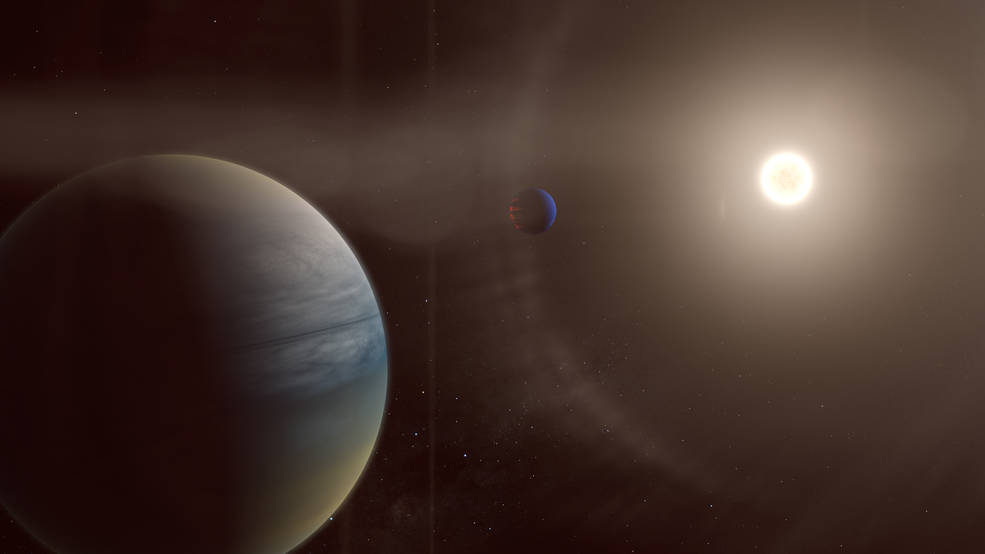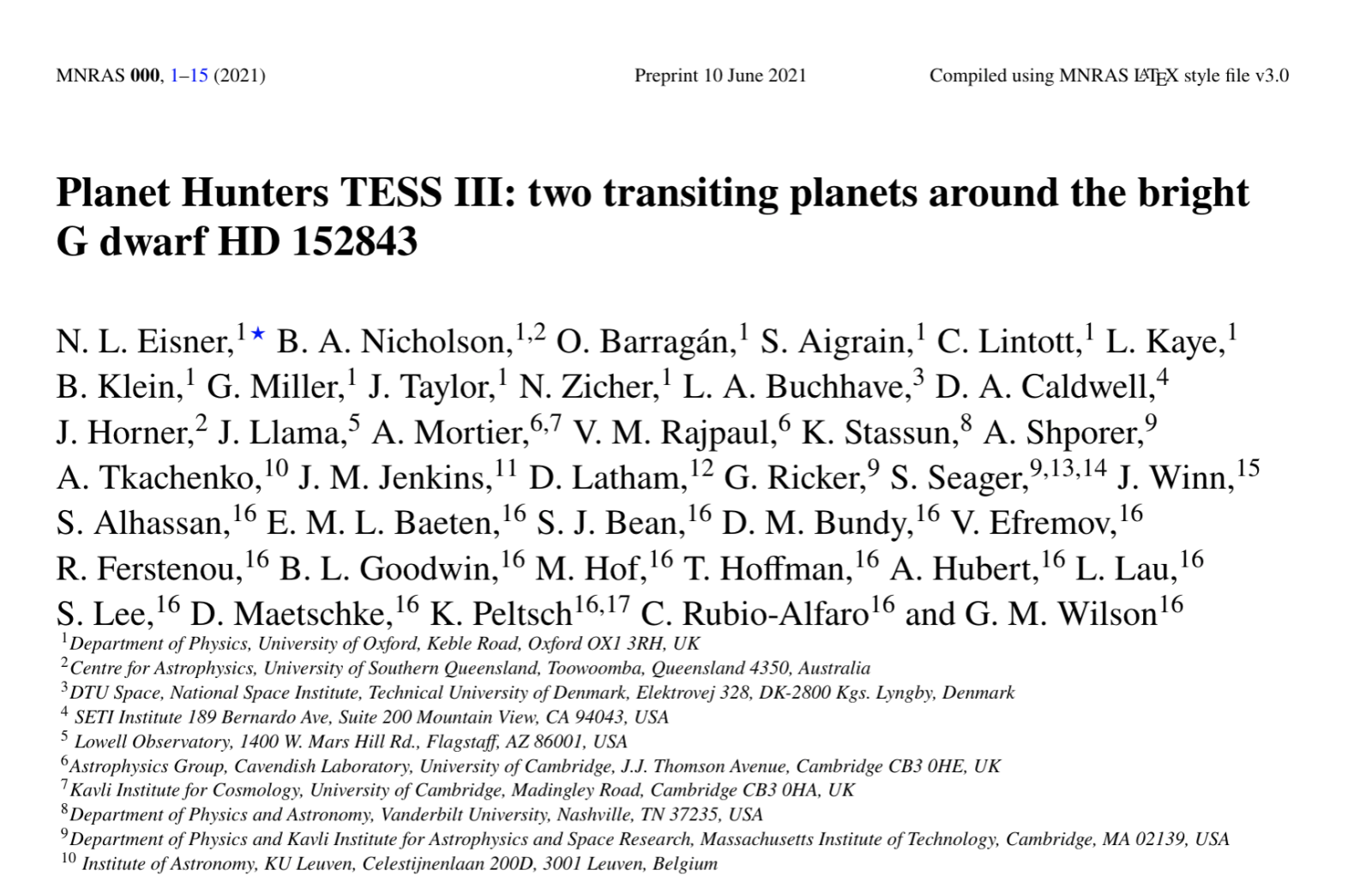How often have you seen something that intrigued your curiosity while observing the sky, or a plant or a bug in your house garden that you had never read about before, but then you just ignored that? Such events may seem normal and fairly frequent, but we do not give them enough attention. However, scientists consider them rare and significant events that may lead to new scientific discoveries. The concept of “citizen science” has, thus, arisen to bridge the gap between science enthusiasts and scientists, who can together present discoveries and research in different fields.
Citizen or Citizen Scientist?
"His greatest shock was the day he learned that his high high-school results did not qualify him to enroll in the scientific college he had always dreamt of joining;" a repetitive sad short story in almost every Egyptian home. Regardless of the subject or college, this concept has led us to falsely believe that it is a local issue that shatters our dreams and causes us to lose our passion. However, science has always proven that this stage in life is never the end of our journey of discovering life. Learning is a long-term process, and our passion for science helps us face this vast universe and solve its riddles.
Discovering life is not a new concept or is restricted to certain people; it is as old as humanity itself. Curiosity is an innate passion, and the difference between people lies in their observations, reflections, and critical thinking. In response, the concept of "citizen science" has emerged; its official practice dates back to the nineteenth century when a number of volunteers, who were interested in science and were non-specialists, raised common questions with scientists on migratory birds. They joined them in recording observations by collecting, analyzing, and writing reports. Today, the scientific fields in which volunteers are engaged are diverse; including astronomy, environment, medicine, amongst others. The tools of collecting and sharing data on global levels have also diversified.
Source: YouTube
"Science needs more eyes, ears, and perspectives than any scientist possesses," this is how the Scistarter database of citizen science projects invited science enthusiasts to join this practice, which encourages all to conduct scientific research; however, following certain rules and under scientists' supervision. The volunteers' qualifications and age differ, ranging from kids playing in their backyards to amateurs with advanced astronomical equipment made easier to use thanks to scientific advances. Technology has also facilitated data assembly and sharing, which was hard for scientists to achieve on their own.
How do they research from home?
The best method for fighting COVID-19 was staying home, but it hindered some scientists from conducting research due to travel restrictions or directing funds to medicine; amongst many other reasons. Still, it was an opportunity for others to fulfill their passion for science and explore other worlds from their homes. One of the most prominent citizen science projects is Planet Hunters TESS, funded by NASA since December 2018. It announced in a paper published by the Monthly Notices of the Royal Astronomical Society journal the discovery of two giant exoplanets that are similar in size to Neptune and Saturn in our own solar system, orbiting around a Sun-Like Star, but almost 1.5 times bigger and slightly brighter.

Credits: NASA/Scott Wiessinger
“Studying them together, both of them at the same time, is really interesting to study how planets form and evolve over time,” said Nora Eisner, a doctoral student in astrophysics at the University of Oxford, UK, and lead author of the study. She added, "this system is interesting because it was discovered by you! With this find, you have once again shown that with visual vetting we are able to detect exciting planet systems that automated computer algorithms struggled to find. Thank you to everyone who helps out with the search for distant worlds on Planet Hunters TESS and who helps further our understanding of our Galaxy." The published paper has the name of Nora Eisner in collaboration with more than 20 persons, most of them are volunteers.

Credits: The arXiv version of the published paper/Nora Eisner
"I participated in the discovery of a new exoplanet," is indeed a source of pride, but this is not applicable to only one person or a hundred! The Planet Hunters TESS project includes more than 29,000 citizen scientists from across the world, who study images of stars' brightness in different stages and notice differences that would reflect the presence of exoplanets. “I regret sometimes that in our times, we have to constrain ourselves to one, maybe two subjects. I am really grateful that I have the opportunity to participate in something different,” said Alexander Hubert, a college student and one of the project participants.
In a special statement to SCIplanet magazine, Prof. Nidhal Guessoum, Professor of astrophysics at the American University of Sharjah and founder of the "Contemplate with Me" program for science communication, says "Amateur activity in scientific research projects has been going on for decades, and in astronomy, in particular, it may date centuries back. Several astronomers contributed great discoveries, and they were not professionals at the time; they were only passionate about the sky, the universe, and astronomical phenomena. They gradually advanced and got equipped with great devices that enabled them to perform observations emulating specialists”.
He adds that there is a huge number of discoveries that have been made and named after their amateur discoverers, citing discoveries of exoplanets, “In 2011, amateurs discovered two planets, orbiting a star about 226 light-years away from us; before that, they discovered a planet orbiting two stars (binary stars), and there are plenty of other examples in this field”. Dr. Omar Fikry, head of the Bibliotheca Alexandrina Planetarium Theater and founder of the “Let’s Talk Astronomy” program for science communication, also explains the concept to the Magazine saying, “the Comet Shoemaker-Levy 9 series of discoveries were made by a German man and his wife; it is one of the most famous contributions by amateurs. This Comet was their ninth discovery, for which they became famous in 1994 as they received recognition from the International Astronomical Union for their contributions in research, proving the importance of the amateurs' role in academic astronomical research”.
Dr. Fikry noted that specialists rely on amateurs to study comets and verify the calculations and observations of supernovae. For example, astronomers provide data of stars believed to be supernovae, and ask the participants, who are mathematics, physics, and computer enthusiasts, to analyze this data after being trained on how to do that. This task does not require high professionalism, as much as it needs computer skills to contribute to research and interpretation of some astronomical phenomena. Although these operations are simple, he adds, they consume the strenuous efforts of the academic researcher. When students finish their work under the supervision of the researchers, the amateur stage ends, and the researcher starts writing their scientific report, after having removed a burden a science enthusiast amateur was able to handle.

Dr. Fikry emphasizes that astronomy enthusiasts today, are of varying degrees: “some own a simple or an advanced telescope and follow the nearby planets and the moon phases, while others are more advanced amateurs emulating specialists; they have maps and databases of the sky, and observe a specific part to discover new objects that have not been discovered by specialists before”. Similarly, Dr. Nidhal Guessoum confirms that, today, advanced astronomical research programs and projects exist, in which amateurs participate in searching for stellar explosions (novas, kilonovas, supernovas, gamma explosions, etc.; for example, Grandma – Kilonova Catcher). He says: "Today, amateurs have good devices, and most importantly, the time and the ability to observe and monitor the sky for long periods, which are things observatories do not have due to the strong demand on huge devices, and the reservations for one research or another".
If science is a space, be an astronaut!
In his reply to a question that SCIplanet asked both scientists—"should we hail or warn from amateurs participation in scientific research?"—Dr. Gassoum did not see any danger, "as long as these amateurs are well-trained, attend workshops, and their observations and results are carefully examined before publishing; just as we examine and peer-review any paper presented by a specialist". Dr. Fikry also confirmed that this practice is "of a double benefit; for an academic researcher, they win time, and for amateurs, they get a taste of and practice academic research under the supervision of specialists".
In conclusion, we assure you that citizen science is not concerned with astronomy only; this example aims to inspire you. Citizen science is concerned with diverse life sciences and has several projects worldwide; I invite you dear reader to check them out, as you may find what could be of interest to you—for example, Citizen Science Central, National Geographic Community Geography, CitSci, and Zooniverse. If you have ever been obsessed with science at any stage of your life, but have folded your dream away for any reason, retrieve it and join scientists in presenting a new contribution and tell the world: "Here I am!"

***************************
"The Arabic version was published as part of the author's participation in the "Workshop for Media and Science in the MENA Region"; one of the Goethe-Institut projects, funded by the German Federal Foreign Office".